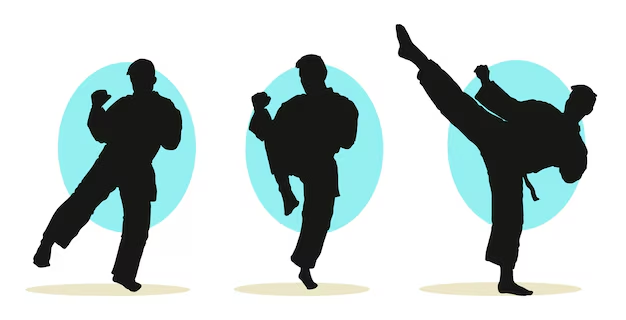I have seen three aspects in conversations in school around the appalling events in Paris. Firstly, the events themselves; their causes and possible long-term consequences. Attacks like these should be deeply upsetting to anyone, and we can all feel shock and sorrow for those affected. Secondly, there’s the global media attention; which has become as much the story as anything. Arguing that media attention should be roughly in proportion to importance of event, and that all lives are equal in value, some have focussed on what they see as the hypocrisy of western agencies and governments who routinely seem to prioritise the lives of some nations over those of others (here’s a great article proposing that – here’s another denying it; and here’s a third rather provocative perspective). Both of these aspects are important and worthy of deep and critical examination in their own right, and in a school like ours such conversations do happen as a matter of course. I have, however, noticed that in group discussions, the aspects sometimes seem to be in tension, and sometimes for some students, focussing on one seems to preclude the other. At it’s worst, those focussing on the tragedy in France see any other focus as cold-hearted, and those focussing on media see a Parisian focus as partisan and unfair – perhaps even racist. There is danger that we end up misunderstanding each other, and getting distracted from the issue itself. So there is a third level here; that of talking with our students to help them genuinely see and engage with the different levels (including, reflexively, this third level), and to develop in them the ability hold these ideas in tension, without seeking a futile closure or resolution.

What’s been interesting for me to see is the motivations of those who take different views. What emerged in one debate was that empathy and compassion were driving those who were focus on the known victims; for others a sense of justice for other, perhaps unknown victims around the world was driving them to look more broadly. So both perspectives are coming from a commitment to care; both are seeking better ways forward, so it cannot be one or the other. There has to be room for both. Recognising and naming this shared commitment with students, and moving conversations from but to and, is a powerful step in developing the necessary analytical sophistication to tackle difficult, multi-faceted, highly emotional topics. In cases like these, there is also an important need (counter to most trends today, certainly most media trends) to be patient, and to realise that a slow, considered conversation, that results in deeper understanding of others, is far, far better than a short argument where both sides become deeper entrenched and sure of themselves. These conversations, and how we conduct them, will say a lot about our community; please engage your children on the topic and see where they stand on this.



6 Responses
While I could not agree more with the idea that we need to name the duality of this thinking the point about the necessary analytic sophistication required to achieve this is very important. Most adults struggle with ambiguity of this sort. Amplified with an emotional aspect and potential for careful rational consideration is decreased exponentially. I am certainly not suggesting that we do not engage in the conversation, we always need to aim high and push our thinking. My question is more to do with age appropriate understanding and what can we reasonably expect in terms of understanding from our students within various developmental stages. Again, back to our conceptual – essential understandings. Life is valuable, situations can be complex and demand an openminded approach, there are various ways of interpreting experiences, and possibly even: open dialogue and careful thinking are to be encouraged.
Yes, that's fair. This is a very high bar – one to aim at for our older students. It would be interesting to think about how we would approach this for different aged students; it could be addressed at any stage, but with very different approaches and levels of outcome. Younger students would need to be more concrete. I wonder if it would be interesting case study for us as we begin to think about articulating our Thinking Skills programmes K-12. It might precisely exemplify the different approached.
"Recognising and naming this shared commitment with students, and moving conversations from but to and, is a powerful step in developing the necessary analytical sophistication to tackle."
To me, that represents what we, as a United World College and a global community, should be aiming towards. As has been mentioned, this is a very high bar and I believe that Mr. Dalziel's point about considering an age-appropriate understanding is significant. While the "Be The Change", Global Perspectives and TOK courses allows older students to explore issues critically, I think there is potential to introduce similiar thinking across the Junior school as well. Of course, I am no expert and do not know what the mechanics of such a solution are but I think considering it within the context of the 5 Elements might be useful. I also think that we would want this sort of dialogue and understanding to take place across the College, and not just amongst students but across and between different stakeholders of the UWC community.
Thanks Arjun; that's a really interesting point. I think you are absolutely correct in your identification of those three courses; I'd love to hear from others who might have suggestions about what a primary-appropriate focus might be.
Yes, this is such a difficult balance to strike, as I am sure many teachers have experienced this past week. I was quite taken aback by the conversations I have had with my gr 10s on this topic. Many of them are expressing extremely 'balanced' or politically correct views. But already at their age, it is as though they fear their own emotional response, because they don't consider it appropriate in the context that they live in. Many of our students do have more of a personal and emotional relationship with Paris (because they are form there, have been/lived there, know people there) and yet some of them will deny that this plays a role for them. I believe that the way in which we as a humanity respond to terrorist attacks or refugee crises emanates from our individual emotional response, so acknowledging the personal perspective is important. I fear that our teenagers sometimes skip this step and jump straight to the pre-chewed politically correct views fed to them vi social media, without considering this.
There is a link to the 'mindfulness' piece here, no? One wonders if the world would be quite different if post 9-11, everyone had been able to be aware of their own emotions. I hesitate to label emotions as problems (one way or they are unavoidably the root of all decision making) but the obvious, high-intensity emotions are *really are* deeply problematic here. The subtler emotions of compassion, commitment to truth and so on, are lost in the maelstrom of anger/loss.